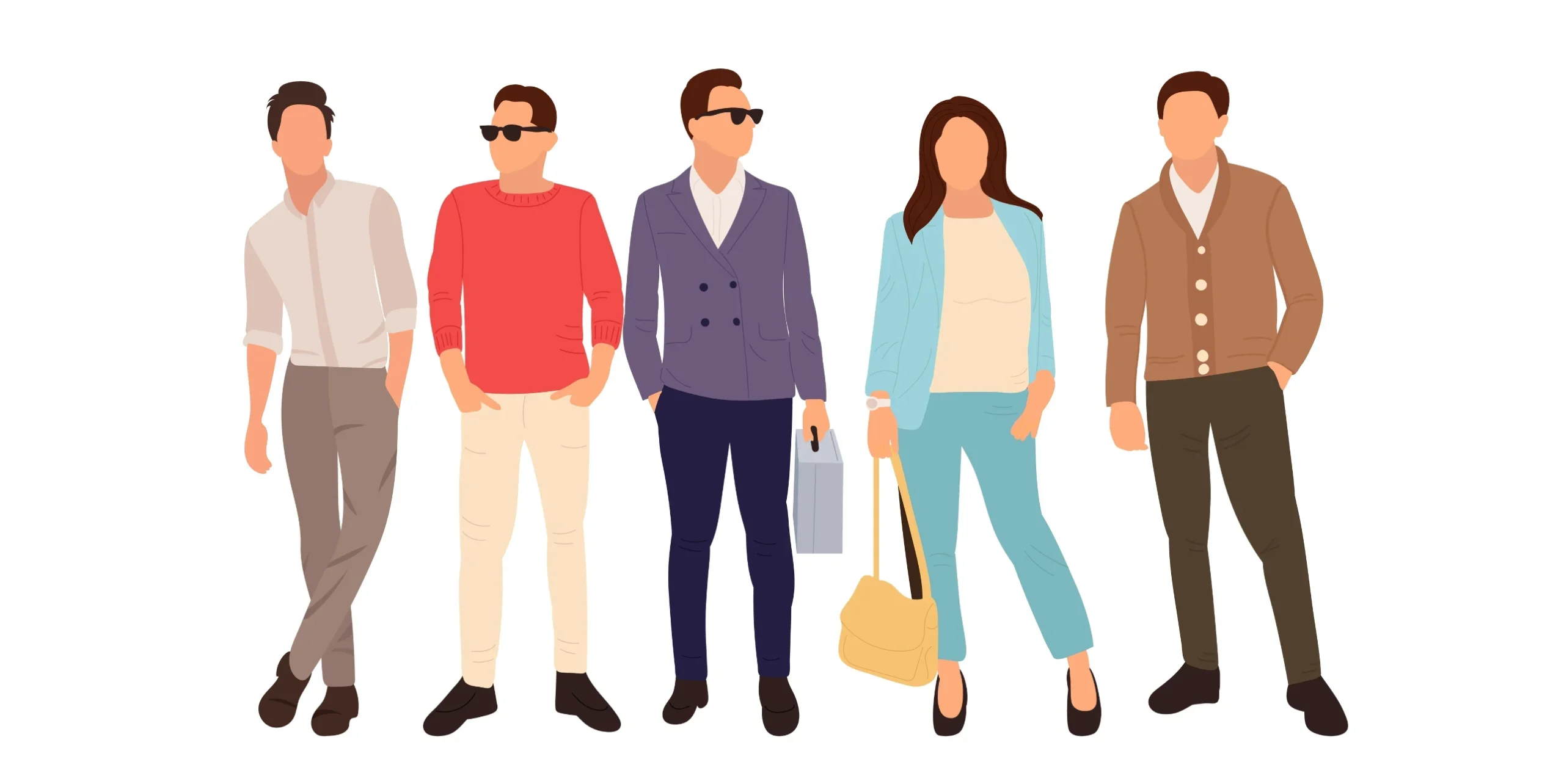Imagine a world where everyone dressed the same way, in plain and monotonous attire. Would you be able to distinguish one person from another? Would you rely solely on their physical appearance to judge their personality? Thankfully, we don’t live in such a dull reality. Dressing is not just about putting on clothes; it is an art that allows us to express our individuality and showcase our personality. In this article, we will explore the significance of dressing in shaping our identity and how it influences the way others perceive us.
First Impression:
In today’s fast-paced world, where first impressions can make or break important connections, the significance of dressing appropriately cannot be understated. It is often said that actions speak louder than words, and our attire is indeed a reflection of who we are as individuals. Whether we like it or not, people judge us based on our appearance within seconds of meeting us. It may seem superficial, but studies have shown time and again that well-dressed individuals are perceived as more competent, successful, and trustworthy.
The power of dressing to leave a lasting impression goes beyond just our personal interactions; it extends to various facets of life. For instance, think about attending a job interview. Your resume might highlight your qualifications and experience, but it’s your appearance that creates an instant impact on the interviewer. Similarly, when making a presentation at work or delivering a speech in public, how you present yourself can greatly influence how the audience perceives your message.
Self-Expression:
Clothing is not simply about covering our bodies; it is a powerful form of self-expression that reflects our individuality and style. The clothes we choose to wear say a lot about who we are before even uttering a single word. Our fashion choices help create an image of ourselves in the minds of others, giving them a glimpse into our personalities, tastes, and values.
Each person has their own unique style and preferences when it comes to clothing. Some may opt for bold and vibrant colors, while others may favor more subtle and minimalist designs. It is these choices that allow us to stand out from the crowd, conveying our true selves to the world. When we dress in a way that makes us feel confident and comfortable, it radiates through our demeanor, boosting our self-esteem and allowing us to express ourselves freely.
Confidence Booster:
Dressing well goes beyond simply putting on nice clothes; it is an act of self-expression and a powerful tool to boost confidence. When we dress in a way that aligns with our personal style and makes us feel good, it has a direct impact on how we perceive ourselves and how others perceive us. It is like putting on armor that gives us an extra dose of inner strength and assurance.
The choices we make in how we present ourselves to the world can send subconscious messages about our competence, professionalism, and attention to detail. When we take the time to put together a well-thought-out outfit, it shows that we value ourselves and have pride in our appearance. This self-assurance radiates from within, making us more assertive when interacting with others. We stand taller, speak more confidently, and exude an air of authority – all because of the power of dressing well.
Professionalism:
Professionalism goes beyond just knowledge and skills; it also encompasses the way we present ourselves. Appropriate attire plays a crucial role in enhancing professionalism and credibility. When we dress appropriately for our profession, we send a message to others that we take our work seriously and that they can trust us to deliver professional results.
Moreover, appropriate attire helps build credibility by establishing a sense of authority and competence. Whether it’s a well-tailored suit or a well-put-together business-casual outfit, dressing professionally shows that you respect yourself and your position. This level of respect is projected onto others, giving them confidence in your abilities.
Not only does appropriate attire enhance professionalism and credibility externally, but it also impacts our internal mindset. When we dress professionally, we feel more confident and self-assured, which translates into improved performance. It sets the tone for success by creating an environment where professionalism is valued and expected.
Cultural And Societal Norms:
Dressing is an integral part of our identities and serves as a visual representation of cultural values. Across different societies, dress codes have been established to delineate social norms and set expectations for appropriate attire. In conservative cultures, dress plays a crucial role in preserving religious or moral traditions. For example, the hijab worn by Muslim women symbolizes modesty and adherence to Islamic principles. Similarly, the sari in Indian culture represents femininity and respect for tradition.
Through clothing choices, individuals can express their affiliation with specific cultural groups or subcultures. Take the fashion statement made by Goth subculture members with their dark-themed clothing and makeup. This style expresses anti-establishment sentiments along with an appreciation for music genres like gothic rock. By adhering to these alternative fashion norms, Goths establish a sense of identity within their community while challenging societal conventions.
Conclusion:
In conclusion, we cannot underestimate the impact that dressing has on shaping our personalities. Our clothing choices are not merely superficial decisions; they are powerful expressions of who we are and how we want to be perceived by others. By carefully selecting our outfits, we demonstrate our attention to detail, our sense of style, and even our self-confidence. Dressing well can give us a boost of confidence and empower us to take on new challenges.
Moreover, it is important to note that dressing goes beyond just presenting ourselves aesthetically. It also reflects our values and beliefs. Choosing sustainable or ethically produced clothing shows that we care about the environment and the welfare of workers in the fashion industry. Wearing culturally appropriate attire can show respect for different cultures and foster inclusivity. The way we dress serves as a non-verbal communication tool that sends messages about us before we even utter a word.
In today’s fast-paced world, where first impressions matter more than ever, paying attention to how you dress becomes crucial in every aspect of life – from job interviews to social events. It is not about conforming or adhering blindly to societal expectations; rather, it is an opportunity for personal expression and reflection. So next time you put together an outfit, remember that what you wear carries immense weight – it tells a story about who you are while shaping your personality along the way.



